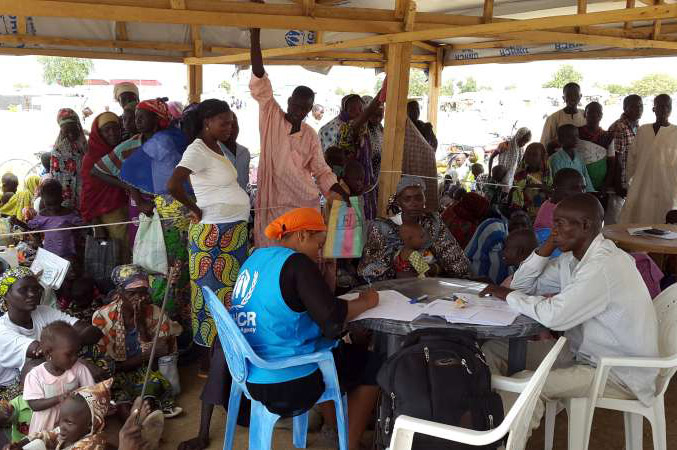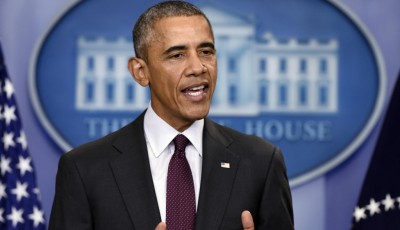Nigerians fleeing violence go deep into Cameroon
Nigeria’s presidential election in March has done nothing to stop Boko Haram’s destructive behavior.
Violence and insecurity have continued to affect population movements in northern Nigeria and neighbouring countries, the United Nations refugee agency reported on Tuesday (July 21).
The population of the Minawao camp has risen to roughly 44 000 from 30 000 at the same time a year ago.
Nine pupils were burnt to death following a Boko Haram attack on a Cameroonian border village, Kamuna, on Sunday.
In Cameroon’s remote Far North Region, a steady flow of Nigerian refugees are moving from the volatile Nigeria-Cameroon border area and seeking shelter some 100 km inland at the Minawao camp, which is run by UNHCR and its partners. “The refugees said they had fled militant attacks in Nigeria’s Borno state”, UNHCR spokesperson Leo Dobbs told a press briefing in Geneva. “The volatility of the border was borne out earlier this month when there …have been a series of attacks and clashes including a suicide bombing on July the 12th, the first such attack in Cameroon”.
Two women wearing the full Islamic veil blew themselves up in the far northern border town of Fotokol, killing 11 people.
“Now, we, and the government have been encouraging people to move further south to safe areas to Minawao where they can be helped and where they are safer”, Dobbs said.
This follows fighting around the Nigerian border town of Damasak, with refugees arriving in the villages of Chetimari and Gagamari on the Nigerien side of the border across which more than 100,000 Nigerians are reported to have fled since mid-2013. “UNHCR teams are unable to access the border area for security reasons”, Dobbs said.
“There is always a fear of people being forced back and we have, in the past, urged the authorities in Niger and Cameroon to keep their doors open to refugees and not to send people back against their will”, he said.
Another resident, Bachirou Ahmad, told AP that a raid on a nearby village the previous week by suspected Boko Haram militants had led those living in Kamouna to ask for greater protection from the government.
Most new arrivals said they preferred staying in Chetimari and Gagamari rather than the Sayam Forage refugee camp, further inland, hoping to return to Nigeria as soon as possible.












